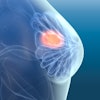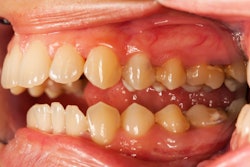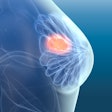Selective serotonin reuptake inhibitors (SSRIs), commonly prescribed antidepressants, may slow gum regeneration by lowering protein levels that are important for bone development, according to a study recently published in the International Dental Journal.
Furthermore, SSRIs may reduce the expression of signaling proteins, specifically insulinlike growth factor 1 (IGF-1) and hepatocyte growth factor (HGF), preventing stem cells or periodontal ligament stem cells (PDLSCs) from maturing into bone-forming cells, the authors wrote.
“This study suggests that SSRIs may impair osteogenic differentiation of PDLSCs by suppressing IGF-1 and HGF signaling pathways,” wrote the authors, led by Yang Zeng of the Southwest Medical University Stomatological Hospital in China (Int Dent J, September 16, 2025, Vol. 75:6, 103906).
The in vitro study isolated human PDLSCs from extracted premolars and exposed them to different concentrations of fluoxetine, an SSRI, during osteogenic induction. Fluoxetine was used as a model SSRI to examine its impact on PDLSC bone-forming ability and to explore underlying molecular mechanisms, they wrote.
Additionally, researchers compared the effects of five commonly prescribed SSRIs -- citalopram, fluvoxamine, fluoxetine, paroxetine, and sertraline -- on PDLSC viability and osteogenic differentiation. Osteogenic activity was assessed with alkaline phosphatase (ALP) and Alizarin Red S (ARS) staining. To further investigate molecular changes, rescue experiments were conducted by overexpressing IGF-1 and HGF.
Fluoxetine inhibited PDLSC osteogenesis in a dose-dependent way without causing cell toxicity, reducing ALP activity by 45.2% at 15 μM (p < .001) and decreasing calcium nodule formation by 52.8% (p < .001). Protein expression patterns in PDLSCs were significantly altered after fluoxetine treatment. ALP and ARS staining showed that different SSRIs affected PDLSC osteogenesis to varying degrees, they wrote.
Among the five SSRIs tested, sertraline and paroxetine produced the strongest inhibition (p < .001), while citalopram and fluvoxamine had minimal impact. Integrated omics analysis found IGF-1 and HGF downregulation, and overexpressing these factors partially restored osteogenic differentiation.
The study had limitations, as it only examined the short-term effects of SSRIs. Future research should use animal models and longer exposure to confirm and assess whether these effects are reversible, the authors added.
“For patients requiring both antidepressant therapy and dental procedures, individualized assessment considering the risk-benefit ratio may be warranted,” Zeng and colleagues concluded.




















